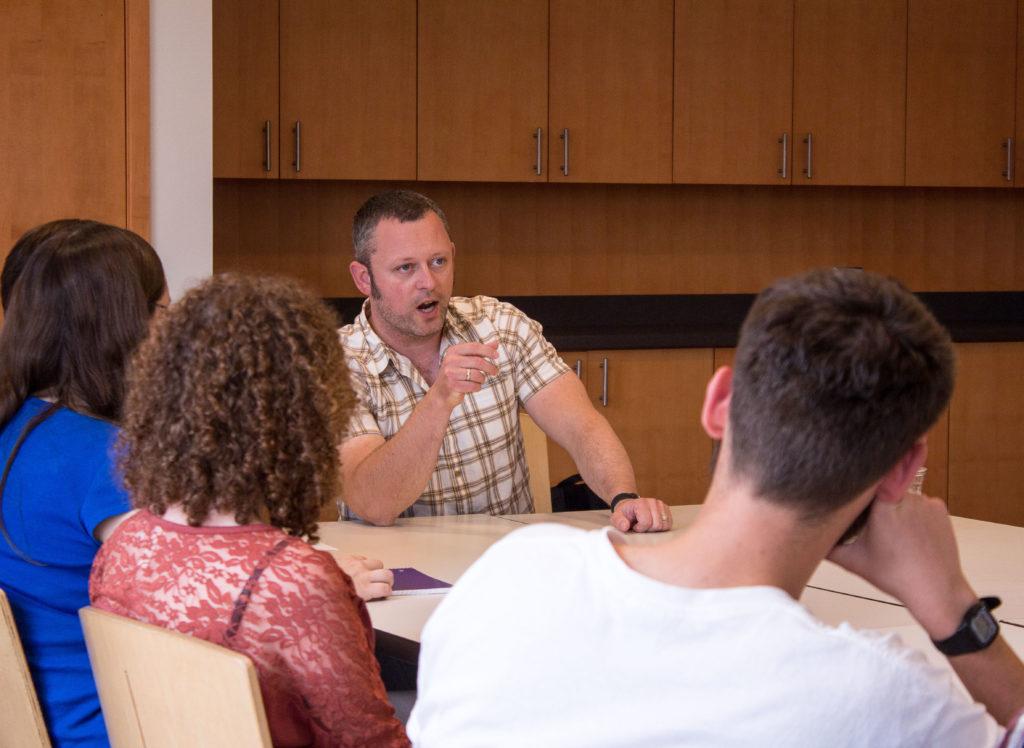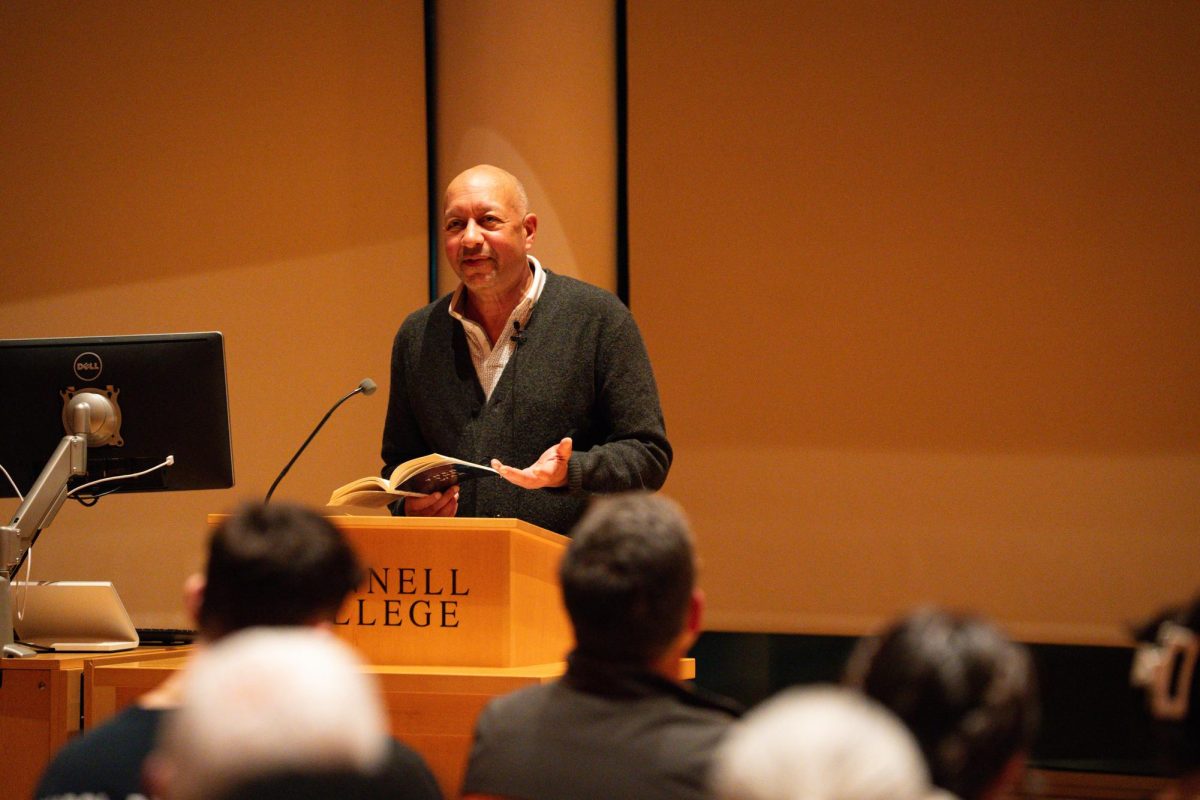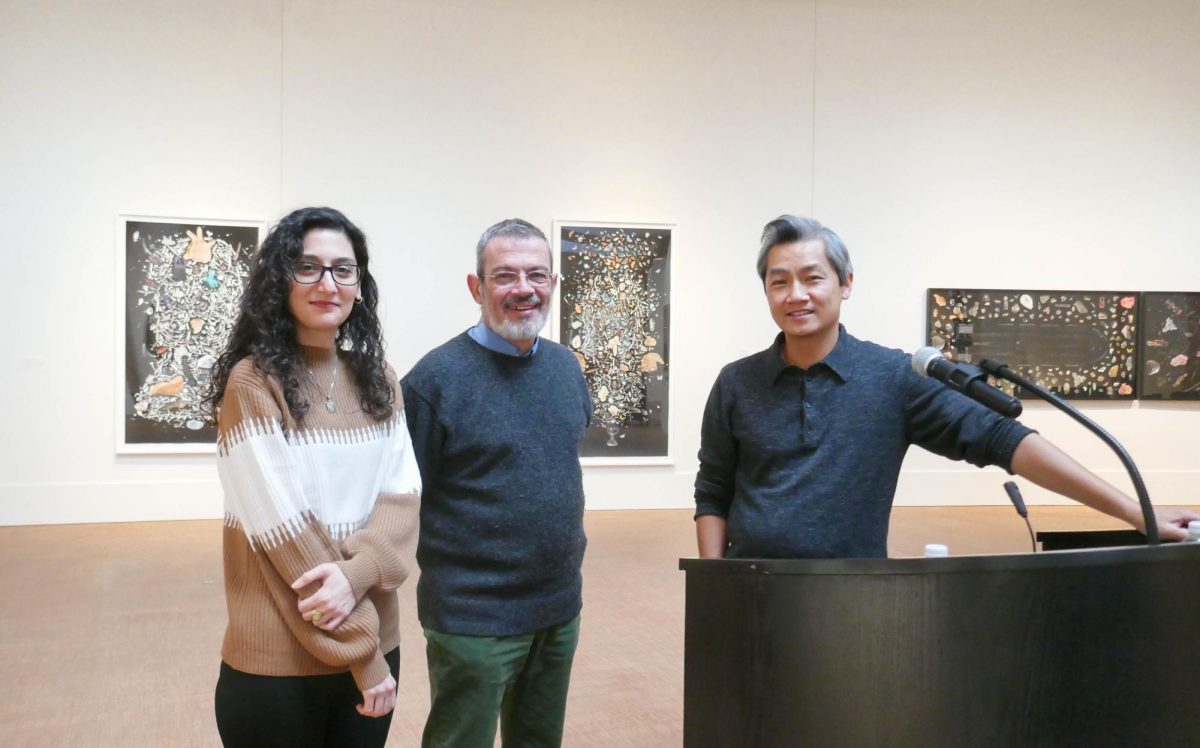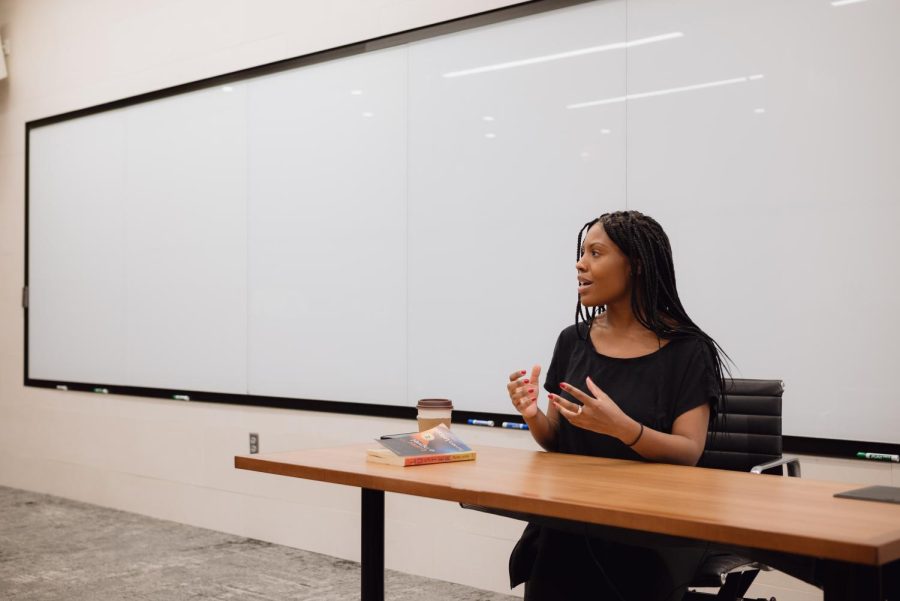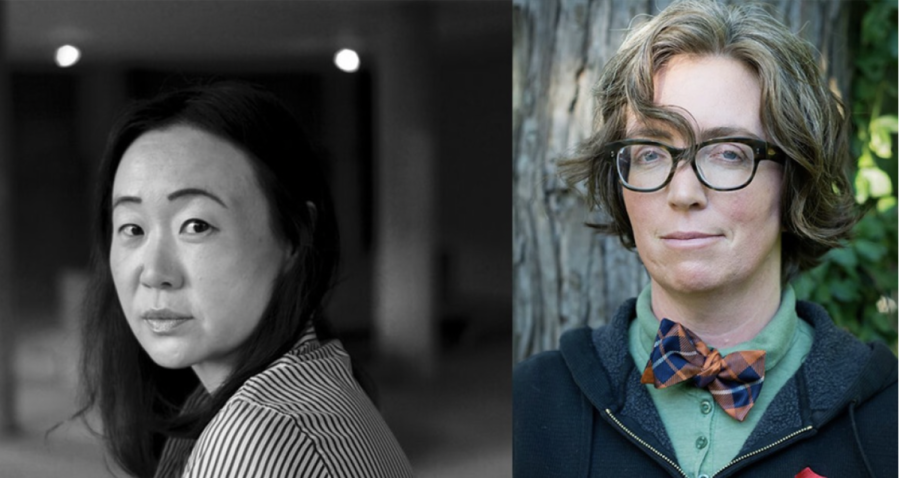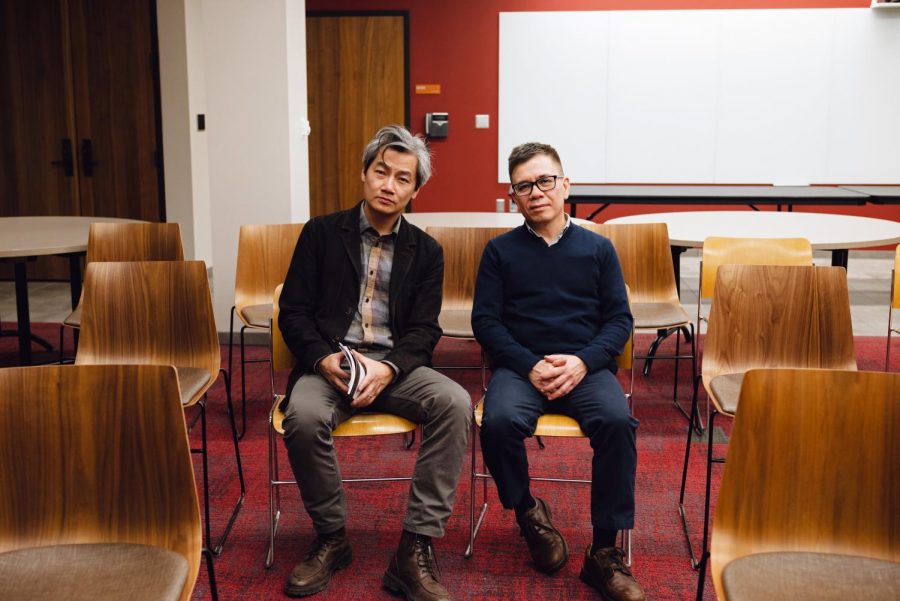Benjamin Percy is the author of four novels, two books of short stories, a book of essays and nonficiton work that has been published in GQ, Esquire, Time, Men’s Journal, the New York Times and the Paris Review. He writes the Green Arrow and Teen Titans series for DC Comics and James Bond for Dynamite Entertainment. Percy sat down with The S&B’s Amanda Weber ’21 to discuss his recent work and how to master a variety of mediums.
The S&B: How would you describe your most recent novel, The Dark Net?
Benjamin Percy: Well, it’s a cyber-thriller that has a supernatural twist to it. The backstory is that about two years ago, five things happened in one week, one fateful week, that made me want to write about the Internet and our nakedness and vulnerability online. My sister’s email got hacked, my friend’s Facebook feed got hacked and my inbox and social media feed filled up with spam. My neighbor filed his taxes and discovered that someone had already done so and collected the refund. My credit card information was stolen and used by someone in Spain. And then my father clicked on the wrong email attachment and his laptop froze and a message popped up. It was ransomware, and they demanded a certain amount of bitcoins be paid their way in order to free up his hard drive, otherwise it would be erased. All these things happened simultaneously. I also picked up an article at the same time, one by Lev Grossman, the author of “The Magicians.” It was published in Time Magazine, all about Silk Road, about the Deep Web, about the Dark Net. I was in a really kind of technophobic place back then — some people accused me of being a bit of a Luddite. So I knew I had a lot of research to do to authenticate this whole digital realm. I spent the next few years on the Google campus, talking to people at Apple, talking to people at Verizon, talking to digital security experts about this world and trying to create a credible platform for what eventually became a supernatural story, in order to ground the fantastic.
You’ve written a lot of other supernatural novels — where did you get your inspiration for those?
I’ve always been interested in channeling cultural unease and taking a knife to the nerve of the moment. And if you look at some of my favorite speculative stories, they’re often doing the same thing. If you look at “Frankenstein,” say, it’s all about the Industrial Revolution. It’s all about the fear of science and technology, of man playing god. If you look at “Godzilla,” it’s all about post-atomic anxieties. If you look at, say, the slew of apocalyptic and post-apocalyptic narratives that rose up after 9/11 and during this time of climate crisis, you know, there’s a reason these stories are as resonant as they are. It’s because they reflect the zeitgeist. I wrote “The Dark Net” for that same reason. We have so many things to fear right now, but I think cybercrime is chief among them. … I was motivated for political reasons, for ecological reasons. The novel before that, which is called “Red Moon” — it’s a werewolf novel but really it is a novel about xenophobia, it’s about the other, the fear of the other. And it’s a reflection of cultural divisions at work in this country. Sometimes there’s something about speculative fiction where it’s more digestible for people to wrestle with the issues of the day through a cracked mirror version of our world instead of a direct representation of our world.
Speaking of “Red Moon,” you’re currently adapting “Red Moon” and “The Wilding” for the screen. What is it like to translate your work across media?
Frustrating. You know, I’ve already told the story in its ideal form. And it’s always exciting to be writing for TV or writing for film, but I’ve learned over the years — having been involved in dozens of projects now — things don’t usually work out. Managing expectations is a big part of that and understanding that there are a lot of cooks in the kitchen in Hollywood. There is the production team and there’s usually a network or a studio team. There’s the director, there are the actors. They all have different sets of notes that are sometimes contradictory. So you’re rewriting and you’re rewriting and you’re rewriting, sometimes in circles, which is occasionally maddening, and sometimes what you end up with in the end is not at all the film that was playing in the reel of your own mind. I would say that I’ll keep chasing that carrot whenever it’s dangled in front of me — whenever Hollywood comes calling, I’ll always answer — but I’ve never had a great experience.
How does your writing style and process differ for different media — novels, comics, nonfiction, screenwriting, etc.?
Novels are a marathon. You’re working on them for years, and you’re alone in the dark for most of that time. You have help from your agents and you have help from your editor, but that’s a very small crew of people compared to the work you do in comics and screenwriting. Those are collaborative mediums. They’re also fast mediums, especially comics. If you’re writing comics, instead of a marathon, you’re writing at a sprint. You can write a script and edit it up and approve of the art and two weeks later it’s on the racks at your local comic book shop. As a result of this, there’s an incredible immediacy that can be exciting — you produce something and get that instant fan response. That’s energizing, that’s infectious. You can also write about headline news and oftentimes you’re charged with doing that. Like with the “Green Arrow” series, which is supposed to be a political series. I write about whatever is in today’s headlines and then channel it onto the page and it’s right there in front of people. But the collaborative element is maybe the most exciting part of writing comics, in that you have the artist and you have the editorial community and you have a colorist and a letterer and you’re all trying to tell the best story possible. Being able to compromise and being able to sort of poke each other and come up with the best storyline possible has been good and humbling.
Is there any advice you would like to give to aspiring writers at Grinnell?
Read your brains out and write your brains out is the best advice out there. I would say that there is a lot to be learned from rereading. … I’ve since then become a very deliberate reader, a very slow reader.
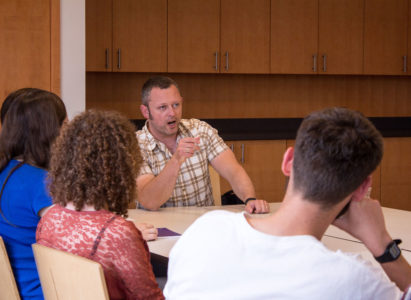
Benjamin Percy spoke about his writing at a round table event on Thursday afternoon.
Photo by Sarah Ruiz


















































